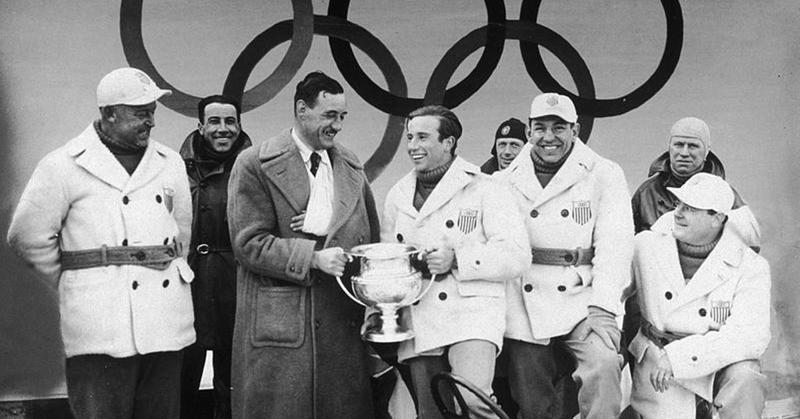The Unexpected Connection Between The Dewey Decimal System And America's First Olympics
By | January 31, 2022

On February 3, 1932, the third Winter Olympic Games opened, marking the first time that the United States hosted a winter Olympics. The 11-day event took place in Lake Placid, New York, which seemed like an unlikely place to host an international sporting event, but a famous father-son duo had lofty goals for the mountain town.
Melvil Dewey And Lake Placid
In the late 1800s, Lake Placid was a typical upstate ore-town with a splendid lake and some pretty mountains, but within a few years, it was "discovered" by the wealthy elite, who turned the area into their retreat away from the city. It was initially a summer playground for the rich, but in 1895, Melvin Dewey, the renowned librarian who developed the organizational system named after him, founded the Placid Park Club to introduce skiing, sledding, and ice-skating opportunities to the area to attract folks in the winter months. Dewey even helped the town incorporate into an official village and suggested the name Lake Placid.
In the mid-1920s, Dewey's son, Godfrey, who'd helped his father design much of the winter sports facilities, was determined for Lake Placid to host a Winter Olympic Games. After traveling to Switzerland to meet with the International Olympic Committee, he learned that to be considered as a viable candidate, Lake Placid would need to garner support from the local and state government and strike a better deal than Denver and Yosemite Valley, who were both in the running to host the 1932 Winter Olympics.

Franklin D. Roosevelt And America's First Olympics
After he returned to New York, Godfrey Dewey began rallying the requisite governments and their leaders to his side, easily winning the support of the Lake Placid Chamber of Commerce. The governor of New York, Franklin D. Roosevelt, presented more of a challenge, but Roosevelt happened to be campaigning for the U.S. presidency at the time, so Dewey convinced him the Olympic bid was a chance to curry favor with his future voters. As a result, Roosevelt supplied the funding for the improvements needed to get Lake Placid Olympics-ready, including a quarter-million-dollar bobsled run, an indoor figure skating rink, and a hockey arena.
Godfrey Dewey's hard work and Roosevelt's money paid off. The I.O.C. unanimously awarded the host city bid to Lake Placid, and the third Winter Olympics were held in upstate New York on February 3–15, 1932. More than 250 athletes representing 17 countries came to compete in 14 winter sports events, and with a total of 12 medals, including six gold medals, the United States topped the medal count at the Lake Placid games. The event was so successful that the Winter Olympics returned to Lake Placid just under 50 years later.

